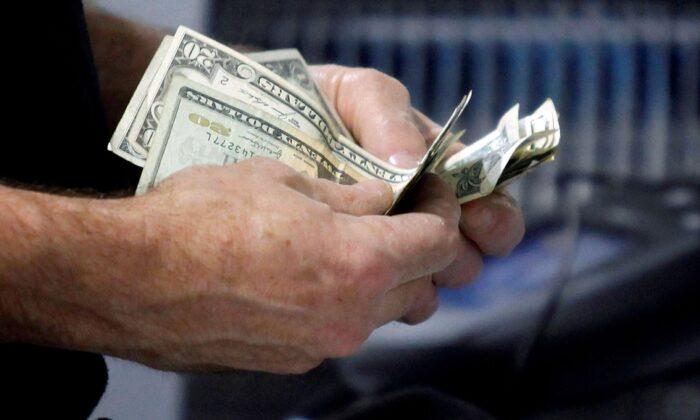It was nice while it lasted.
For months throughout 2021, the Fed wrestled with a brewing inflation storm—first trying to downplay it by calling it transitory, hen little by little changing their tune, talking about the possibility of tapering their quantitative easing (QE) program, and occasionally suggesting that higher rates might be in order.
In last year’s address from the Fed’s Jackson Hole shindig, Chairman Jay Powell said, “History also teaches, however, that central banks cannot take for granted that inflation due to transitory factors will fade.”
The soft pedaled message was basically, we’re going to be looking to tighten monetary policy in 2022, or maybe not.
Then, as inflation numbers soared out of hand, they got serious—doubling up the QE taper and now talking about a rate hike or two in 2022 out loud.
Still, all the while the market called a truce, calmly soaking in all the future talk about reducing bond purchases and increasing the cost of capital.
But now 2022 is here and it’s time for actual action. Things haven’t improved. Jamie Dimon is saying we could expect six or seven rate increases this year alone.
A Ringing Non-Endorsement of Higher Rates
Stocks have been handing it to the Fed by sliding lower, since we rang in the new year.But the week during which the Federal Open Market Committee was scheduled to meet and discuss rate policy, the market had a tantrum of its own. On Jan. 24, indexes opened sharply lower. Altogether, the S&P 500 is down around 10 percent since the start of the year.
No thinking person could misinterpret what the market was saying. You raise rates and this is what you’ll get. You got the market drunk on cheap money; this is what happens when you take away the punch bowl.
But it wasn’t just the market (although the market is the only voice that really matters), the International Monetary Fund (IMF) also chimed in.
The managing director of the IMF, Kristalina Georgieva, warned that raising interest rates in the United States could throw cold water on an already struggling global recovery and that it was “hugely important” for the Fed to be clear about its plans to prevent any unfortunate surprises.
Now it’s not just the stock market, but the global economy sounding the alarm.
And a group called the Jubilee Debt Campaign—a “UK charity working to end poverty caused by unjust debt through education, research and campaigning”—issued its own statement at the beginning of the week.
Executive Director Heidi Chow declared that “the debt crisis has already stripped countries of the resources needed to tackle the climate emergency and the continued disruption from COVID, while rising interest rates threaten to sink countries in even more debt.”
It’s Lose-Lose for the Fed (but Not Necessarily Investors)
Personally, I wouldn’t want to be in any of the Fed governors’ shoes this week. Their situation is basically no-win.If they follow through and hike rates, assets that have been dependent on cheap capital are all going to reprice. That includes the stock and real estate markets. That of course hurts average investors by reducing the value of their 401(k)s and shrinking the value of their homes.
If they find some excuse to hold off, then inflation keeps rising to who knows how high, and that hurts average investors as they watch themselves get poorer.
If they’re lucky, the slight reduction in QE may suck enough money out of the economy to slow the demand that’s driving inflation. If they’re lucky.
For better or worse, there’s a financial economy that has grown up in the world (an economy that makes its money by lending other people’s money instead of actually creating value) and it’s big business.
And for investors, that means there are still opportunities. During the entire lockdown, one sector of the market performed consistently well. The banking industry—financial giants like Goldman Sachs, JP Morgan Chase, and Morgan Stanley—all posted record earnings numbers throughout 2021. That’s why I believe they’re going to be a place for investors to look going forward.
To them, higher rates simply means they’ll be able to charge more for the capital they lend out. And right now, they’re holding near-record amounts of cash at the Fed as well—cash they can quickly reposition to start earning money once rates start rising.
It’s kind of ironic that investors should look to the sector that’s partly responsible for the current economic crisis, but you gotta do what you gotta do.





